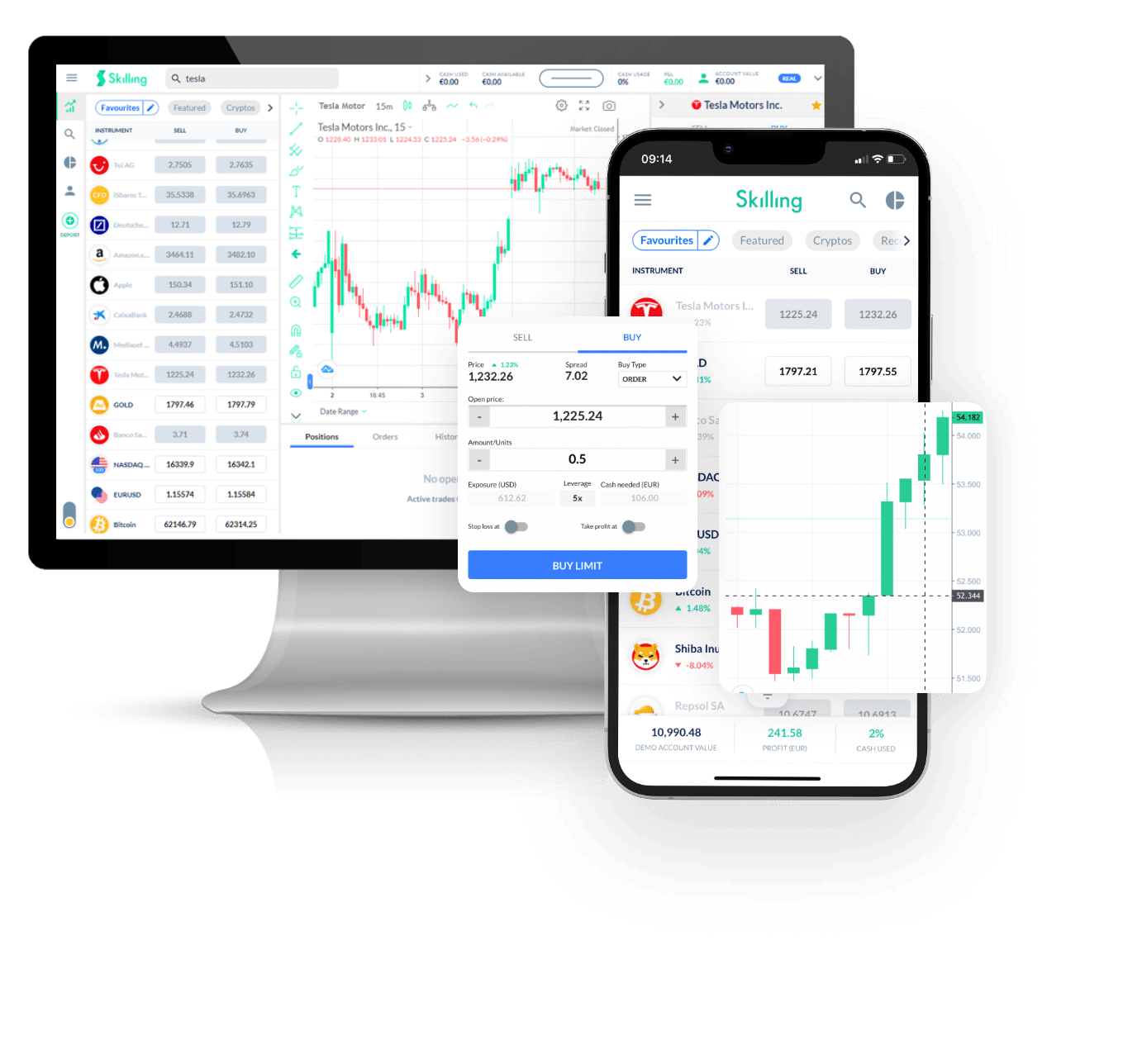Loading...
Trade [[data.name]]
[[ data.name ]]
[[ data.ticker ]]
[[ data.price ]] [[ data.change ]] ([[ data.changePercent ]]%)
Low: [[ data.low ]]
High: [[ data.high ]]
About
History
Competitors
About
History
Competitors
Zoom Video Communications, commonly referred to as Zoom, is an American software company that specialises in peer-to-peer video conferencing. Eric Yuan, a former engineer at Cisco Systems, founded Zoom in 2011. Two years later he released the first iteration of Zoom’s video calling and chat platform.
The software initially gained traction as a business meeting platform. This helped it achieve a $1 billion valuation in 2017. With its reputation at an all-time high, Zoom began to add more features to its software, including the ability for third-party developers to build custom apps on the platform.
Zoom became profitable in 2019 and, soon after, it held an initial public offering (IPO). Zoom usage spiked in 2020 and 2021 due to COVID-19 restrictions. Business usage was surpassed by casual video calls, a shift that propelled Zoom into the mainstream and a sharp increase in revenue. As of 2022, Zoom had over 6,700 employees, including hundreds at its headquarters in San Jose. Revenue in 2022 hit $3.05 billion.
Zoom stock first became available to trade in 2019. The Zoom share price opened at $36 on April 17, 2019. The following day, Zoom shares were trading at $66. The IPO raised $356.8 million and, 12 months later, Zoom stock surged as COVID-19 restrictions disrupted in-person forms of interaction.
A peak price of $559 in October 2020 saw trading activity in the tech company surge. The Zoom share price history shows a change of direction following the end of COVID-19 restrictions. A gradual fall from the 2020 peak left Zoom stock shares trading below $200 at the start of 2022 and, by year’s end, under $100.
Why trade Zoom stock when there are other options? Zoom has established itself in the digital meeting space through a combination of early innovations and pandemic-induced popularity. The number of daily meeting participants has been as high as 300 million and revenue has continued to increase post-COVID-19.
However, other tech companies are vying to become the dominant name in digital chat and video conferencing. Google’s Chat software has the backing of a company that generated over $184 million worth of revenue in 2021. Other viable alternatives to Zoom are Microsoft Teams, Skype, Slack and Amazon Chime.
Zoom could also face competition from companies investing in Metaverse technology, such as Facebook. On this basis, trading Zoom stock has some advantages and disadvantages. However, if you want to create a diverse portfolio of tech shares, there are trading options for all the major video and chat providers at Skilling.
| Swap long | [[ data.swapLong ]] points |
|---|---|
| Swap short | [[ data.swapShort ]] points |
| Spread min | [[ data.stats.minSpread ]] |
| Spread avg | [[ data.stats.avgSpread ]] |
| Min contract size | [[ data.minVolume ]] |
| Min step size | [[ data.stepVolume ]] |
| Commission and Swap | Commission and Swap |
| Leverage | Leverage |
| Trading Hours | Trading Hours |
* The spreads provided are a reflection of the time-weighted average. Though Skilling attempts to provide competitive spreads during all trading hours, clients should note that these may vary and are susceptible to underlying market conditions. The above is provided for indicative purposes only. Clients are advised to check important news announcements on our Economic Calendar, which may result in the widening of spreads, amongst other instances.
The above spreads are applicable under normal trading conditions. Skilling has the right to amend the above spreads according to market conditions as per the 'Terms and Conditions'.

Trade [[data.name]] with Skilling
All Hassle-free, with flexible trade sizes and with zero commissions!*
- Trade 24/5
- Minimum margin requirements
- No commission, only spread
- Fractional shares available
- Easy to use platform
*Other fees may apply.
Why Trade [[data.name]]
Make the most of price fluctuations - no matter what direction the price swings and without capital restrictions that come with buying the underlying asset.
CFDs
Equities
Capitalise on rising prices (go long)
Capitalise on falling prices (go short)
Trade with leverage
Hold larger positions than the cash you have at your disposal
Trade on volatility
No need to own the asset
No commissions
Just low spreads
Manage risk with in-platform tools
Ability to set take profit and stop loss levels

